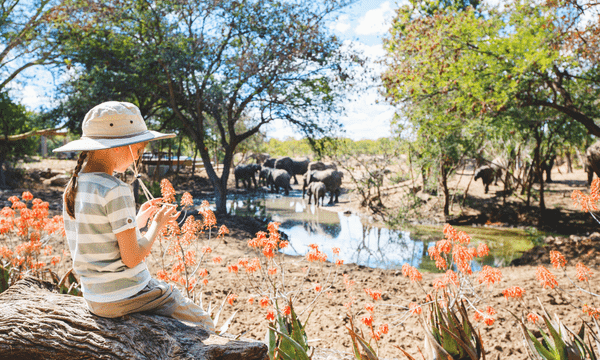
Systems for teaching literacy are usually designed to be “top-down,” teacher-led activities leaving less room for student interest and inquiry. As part of the Early School Success team at McKay Elementary in the Beaverton School District, two first-grade teachers and a literacy coach wanted to excite children’s curiosity, co-create a learning experience where students would feel reflected, and encourage students to see themselves as learners in a community.
Change Idea:
We offered a few “storylines” with geographic backgrounds for students to vote on, and they ultimately chose the African Savanna. We then purchased materials for students to feel immersed in the chosen storyline (e.g., vests, hats, badges, binoculars). Students learned about the geographic region and selected a role to explore within the storyline. They wrote stories about themselves in their roles.
In order to make this work, we needed to partner with the other first-grade teacher in our building to ensure consistency across the grade level. We all worked together with administration to establish a budget for materials.
We hoped students would experience excitement and motivation to read and write as a result of having agency over the topic and place. We wanted them to feel connected to their classmates as they learned more together about the geography of their chosen storyline.
Students read and learned about being a biologist or an animal reporter in the Savanna. Then they wrote about life in these roles. Teachers and literacy coaches noticed an increase in student joy and motivation to participate (compared to teacher-directed approaches to literacy). The volume of writing output also increased. Students reported seeing themselves as “learners,” and an unexpected bonus outcome was smooth integration with the science curriculum.
We learned that student interest increases when they have agency and choice over the way they will engage in literacy activities. The collective experience of writing while all wearing immersive costumes and using special materials is positive and palpable—students wrote more and seemed more enthusiastic.
Status of the Change Idea: Adapted, Adopted, or Abandoned?
Adopted! We’re going to continue with storyline-style learning to observe its impact on student literacy, both in terms of enthusiasm/joy and skill development.
